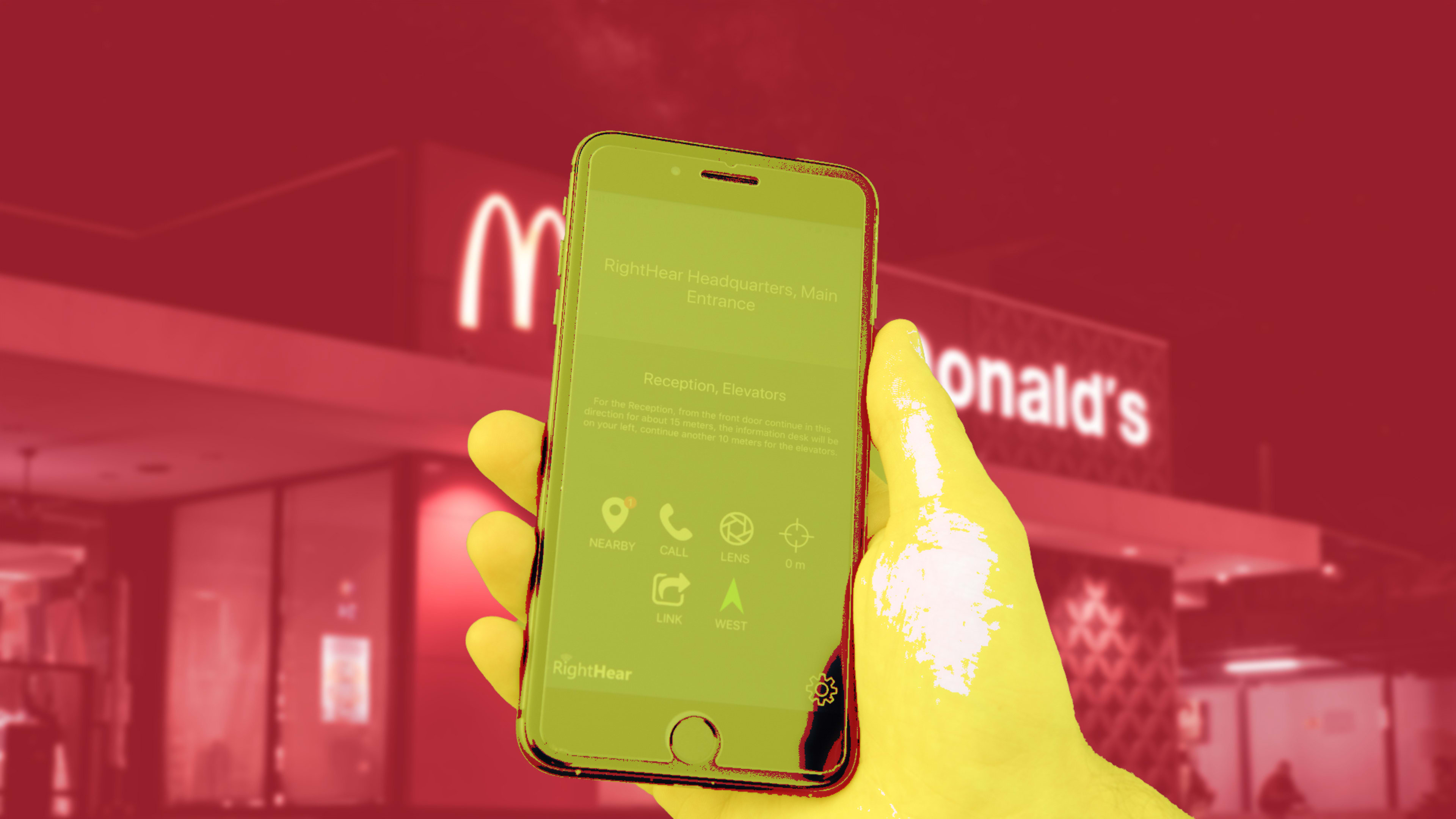There are some 200,000 blind people in Israel. Though those citizens must navigate an at times difficult post-pandemic world (as is this case with visually impaired people everywhere), there’s at least one place—albeit an unlikely one—where conditions have actually improved since the start of the pandemic: McDonald’s, the largest chain restaurant in the country.
Earlier this month, the fast food behemoth announced an extended partnership with RightHear, an Israel-based startup that makes tech for visually impaired and blind people. Per the agreement, RightHear is installing tiny sensors in all of McDonald’s Israel restaurants, targeting locations like entrances and restrooms. The sensors, which use Bluetooth technology to connect with users through RightHear’s smartphone app, can offer helpful information for restaurant-goers. (For example, the app might say that the bathroom is located to the left.) RightHear can also read emergency evacuation protocols, menus, and plaque inscriptions through the app. And the app is available in 26 different languages, including Hebrew, Mandarin, Arabic, English, and Spanish.
This isn’t a new partnership, exactly. The two companies first announced their union in 2019. But that was with a select number of locations; now the tech will be deployed in all of 215 Israel locations for at least the next six years.
“We’re leading the way with accessible signage, so it’s no surprise that other industry trailblazers like McDonald’s, Grand Hyatt Hotel, and Microsoft are partnering with us to make the world more accessible and inclusive,” says RightHear CEO Idan Meir.
RightHear’s was founded in 2016 by Meir and Gil Elgrably (now the CTO), who worked together at a different shopping-related firm, called Zikit. During the course of their work, they discovered an indoor micro-positioning technology that enabled them to distribute coupons more precisely in-store.
The idea for RightHear came while Meir and Elgrably were doing research in a shopping mall, where Meir kept getting lost inside the building. That led him to think: Perhaps they could cater their tech to people who didn’t have the luxury of picking up visual cues in a store. RightHear was thus born in order to start something new—something that would make accessibility core to its mission.
Since then, RightHear has gone on to contract with over 800 companies to make their public areas accessible for those with visual impairments—among them Pizza Hut, Costa Coffee, and, of course, McDonald’s.
The partnership with McDonald’s—a company that has adopted a wide range of supportive approaches to make their restaurants more inclusive, including accessible kiosks and food packaging—was a no-brainer.
“McDonald’s has adopted multiple accessibility solutions to improve their customer experience over the years,” says Meir. “It’s only natural that we partnered with them to help blind and low-vision customers safely and independently access their restaurants.”
Recognize your brand’s excellence by applying to this year’s Brands That Matter Awards before the early-rate deadline, May 3.
